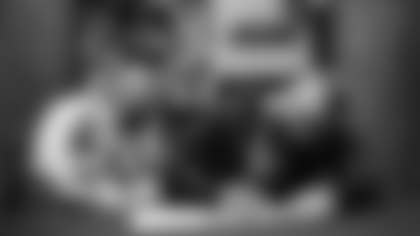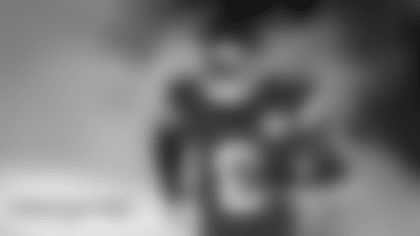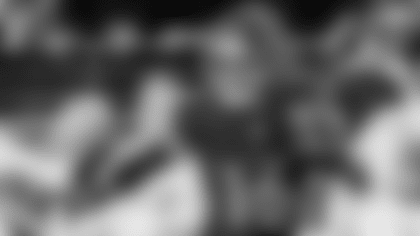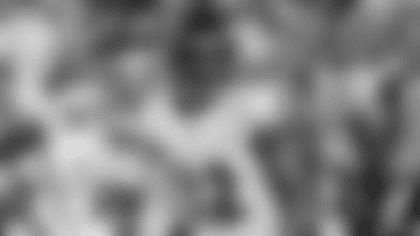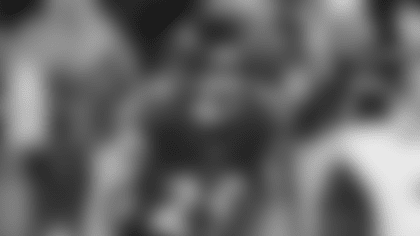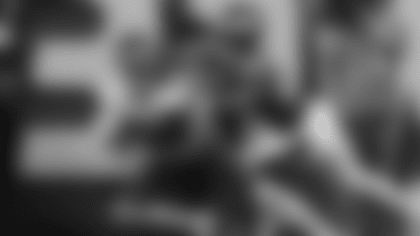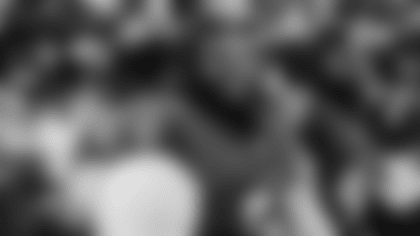What is a catch?
NFL owners put a new answer to that question Tuesday morning by approving a proposal from the competition committee that re-defined the catch rule. Teams unanimously approved the rule, which Ravens Head Coach John Harbaugh helped craft.
The new rule defines a catch based on the following criteria:
- Control of the football
- Two feet, or another body part inbounds
- A football move (ex. A third step, extending the football, tucking the football)
The new rule removes the element of time from the equation and also removes the language that a receiver must "complete the process of the catch through the ground," which led to plenty of controversial calls in recent years.
Under the new rule, infamous calls like the Dez Bryant non-catch against the Green Bay Packers in the 2014 playoffs and Jesse James’ play against the New England Patriots late last season would now be ruled complete passes.
Competition Committee Chairman Rich McKay said that Harbaugh deserves credit for helping institute the requirement of a "football move" as the third criteria, rather than relying on the element of time.
"It got to us that we need to put objective standards as the third act – objective," McKay said. "We've been tweaking for the last six years on this rule, and we realized that's the problem. We needed to start over."
In addition to the catch rule getting approved, here were the other proposals approved Tuesday in Orlando:
- Makes permanent the playing rule that changes the spot of the next snap after a touchback resulting from a free kick to the 25-yard line. (This rule was put into place last year on a trial basis).
- Authorizes the designated member of the officiating department in the booth to instruct on-field game officials to disqualify a player for a flagrant non-football act when a foul for that act is called on the field.
- Lowering the head to initiate contact with the helmet is a foul. This is similar to the targeting rule in college football. However, unlike college, ejecting players for committing this foul was not part of the rule change.
The new language of the rule reads: "If the designated member of the Officiating department determines that a foul for a non-football act called on the field is flagrant, then they can instruct the on-field officiating crew to disqualify the player(s) who committed the foul. Those players who were not penalized, but who engaged in non-football acts that were determined to be flagrant and directly related to the foul called on the field, may also be disqualified by the designated member of the Officiating department. The determination that a foul is flagrant must be based on the available video provided on the television broadcast and the designated member of the Officiating department must instruct the officiating crew to disqualify the identified player(s) before the ball is next legally put in play. The Officiating department does not have the authority to instruct the on-field game officials to assess a penalty against a player."
A proposal to change the NFL's defensive pass interference rule to a 15-yard penalty, rather than a spot foul, was not passed.
Owners also voted on a variety of bylaw proposals, and approved the following changes to league bylaws:
1. Makes permanent the liberalization of rules for timing, testing, and administering physical examinations to draft-eligible players at a club's facility.
- For one year only, amends Article XVII, Section 17.4 to liberalize the rule for reacquisition of a player assigned via waivers.
- Amends Article XVII, Section 17.16 to permit clubs to trade players from Reserve/Injured.
- Amends Article XVIII, Section 18.1 to replace the 10-day postseason claiming period with a 24-hour period.




